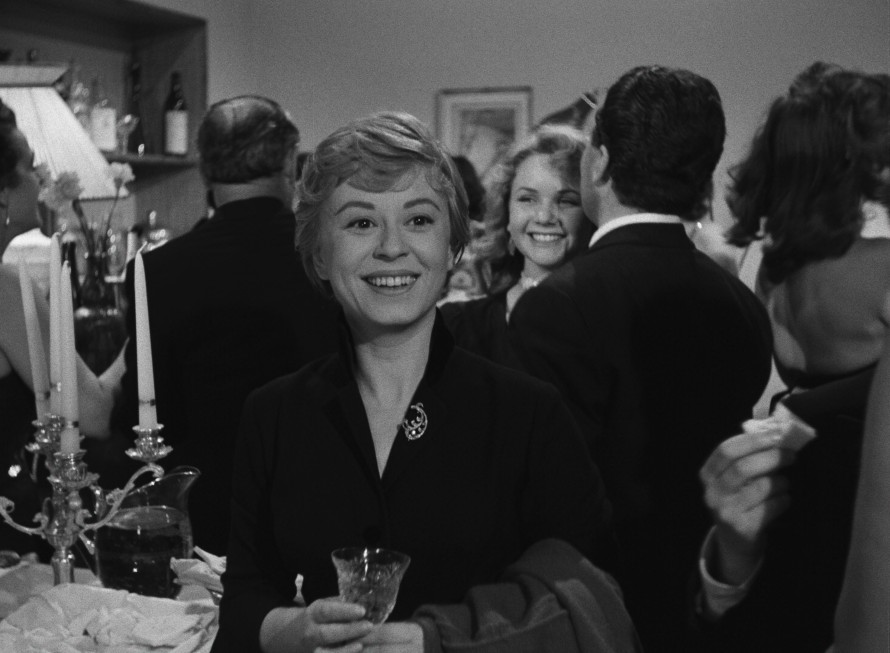
È Il bidone il film scelto da Rainer Rother per celebrare il centenario della nascita di Federico Fellini nell’ambito della sezione Berlinale Classics.
Ambientato nell’Italia del dopoguerra, è considerato l’ultimo film neorealistico del regista riminese: quello che inizia come un film di genere, un caper movie, si trasforma in un tragico dramma esistenziale con note kafkiane.
La versione integrale in 35 mm, presentata al Festival del cinema di Venezia nel 1955, è stata restaurata digitalmente in 4K e sarà proiettata a Berlino in anteprima mondiale. Il restauro è stato intrapreso dalla Cineteca di Bologna e The Film Foundation in collaborazione con Titanus e finanziamenti della George Lucas Family Foundation; i lavori sono stati eseguiti lo scorso anno presso i laboratori de L’Immagine Ritrovata di Bologna.
La rassegna Classics proseguirà con due dei primi lungometraggi ad affrontare il dramma dell’Olocausto, il polacco Ostatni etap (1948) e il cecoslovacco Daleká cesta (1949).
Molto attesi anche il giapponese Bushido zankoku monogatari, vincitore dell’Orso d’Oro nel 1963, un grande classico del cinema muto come Il gabinetto delle figure di cera (1924) e il divertentissimo successo dei Monty Python Un pesce di nome Wanda (1988).
I film in programma nella sezione Classics
(in inglese)
Il bidone (The Swindle)
Italy / France 1955
by Federico Fellini
with Broderick Crawford, Giulietta Masina, Richard Basehart, Franco Fabrizi, Sue Ellen Blake, Irene Cefaro
World premiere of the digitally restored version (DCP 4K)
Il bidone might be the closest Fellini came to creating a genuine genre film, but what begins as a caper movie turns into a tragic, existential drama. Set in post-war Italy and tracing the glaring contrast between rich and poor, Il bidone is considered Federico Fellini’s last neo-realistic film with a touch of Kafka. The world premiere screening of the digitally restored version is in honour of the director, who would have celebrated his 100th birthday on January 20, 2020, and of the 30th anniversary of Martin Scorsese’s Film Foundation.
The 35mm camera and sound negatives, as well as the original fine-grain were used to restore the full-length version of Il bidone that was presented by Fellini at the Venice Film Festival in 1955. The restoration was undertaken by the Cineteca di Bologna and The Film Foundation in collaboration with Titanus, with funding provided by the George Lucas Family Foundation. Restoration works were carried out at L’Immagine Ritrovata in 2019.
Bushido zankoku monogatari (Cruel Tale of Bushido)
Japan 1963
by Tadashi Imai
with Kinnosuke Nakamura (in 7 roles), Satomi Oka, Kyoko Kishida, Misako Watanabe, Yoshiko Mita
World premiere of the digitally restored version (DCP 2K)
Historical episodes from generations of a samurai family graphically reveal the barbarity of the feudal system in medieval Japan, exposing parallels to the modern achievement-oriented society. Imai’s film won the Golden Bear in 1963. The digital restoration was funded by the Toei Company, Ltd. on the occasion of the 70th anniversary of the Berlinale, and carried out by the Toei Lab Company; Toei will also be celebrating its 70th anniversary next year. The primary element used for the restoration was the original 35mm negative.
Daleká cesta (Distant Journey)
Czechoslovakia 1949
by Alfréd Radok
with Blanka Waleská, Otomar Krejča, Viktor Očásek, Zdeňka Baldová, Eduard Kohout
World premiere of the digitally restored version 2019 (DCP 4K)
The film traces the path of Czech Jews to Germany’s extermination camps, using the fictional narrative of a family from Prague. The narrative scenes are combined with clips from Nazi propaganda films, newsreels and Leni Riefenstahl’s Triumph des Willes (Triumph of the Will) from 1935. Director Alfréd Radok, who was himself interned in a work camp and lost close relatives to the concentration camps, created an artistically effectual portrayal of the horrors of the Holocaust. The digital restoration was supervised by Národní filmový archiv, Prague and carried out at Universal Productions Partners (UPP). Both sound and image were digitised from the duplicate positive preserved by Národní filmový archiv, Prague. Missing parts of the image were retrieved from a nitrate print from the collection of La Cinémathèque de Toulouse, which was preserved at CNC.
A Fish Called Wanda
United Kingdom / USA 1988
by Charles Crichton
with John Cleese, Jamie Lee Curtis, Kevin Kline, Michael Palin, Maria Aitken
World premiere of the digitally restored version 2017–2019 (DCP 2K)
A fast and furious romance in Britain’s best comedy tradition. A London barrister is seduced by an American jewel thief who hopes she can use him to find out where his client hid the loot from their heist. At the 2020 Berlin Film Festival, Park Circus will be presenting the world premiere of a new 2K restoration of the MGM Studios’ production A Fish Called Wanda. The restoration was carried out by Arrow Films; the original 35mm camera negative was scanned in 4K resolution on a pin-registered Northlight Scanner at Pinewood Studios.
Ostatni etap (The Last Stage)
Poland 1948
by Wanda Jakubowska
with Wanda Bartówna, Huguette Faget, Tatjana Górecka, Antonina Górecka, Maria Winogradowa, Barbara Drapińska, Aleksandra Śląska
World premiere of the digitally restored version 2019 (DCP 4K)
Ostatni etap was one of the earliest films to tackle the subject of the Holocaust and was shot partially on location at Auschwitz-Birkenau. The director realistically depicts the everyday horrors of forced labour and mass extermination, but also resistance by the women prisoners. The restoration by Poland’s National Film Archive – Audiovisual Institute, Warsaw, in cooperation with Tor Film Production, was based on a duplicate negative, since the original camera negative was lost. The restoration was funded by the European Regional Development Fund and the Polish Ministry of Culture and National Heritage.
Das Wachsfigurenkabinett (Waxworks)
Germany 1924
by Paul Leni
with Emil Jannings, Conrad Veidt, Werner Krauss, Wilhelm Dieterle, Olga Belajeff
World premiere of the digitally restored version 2015–2019 (DCP 2K) — with audio description
Harun al-Rashid, Ivan the Terrible, and Jack the Ripper feature in this fantastical three-part omnibus film directed by Paul Leni. It was a magic moment in silent filmmaking, between an art adventure and fun fair. The screening is a cooperative venture of the Berlin International Film Festival and the Deutsche Kinemathek, working with ZDF and ARTE. The film will be shown on February 21 at 5.30 pm with live musical accompaniment by the Ensemble Musikfabrik from North Rhine-Westphalia, conducted by Elena Schwarz. The new music, composed in 2019 by Bernd Schultheis, Olav Lervik, and Jan Kohl, was commissioned by ZDF/ARTE. The digital restoration was funded by the German Commissioner for Culture and the Media (BKM).

More Stories
Oscar 2025, una notte di sorprese e conferme
Inizia il Festival. Nell’editoriale della direttrice Tricia Tuttle “la politica è nel nostro DNA”
Screening Guide 2025, per il pubblico e per la stampa accreditata